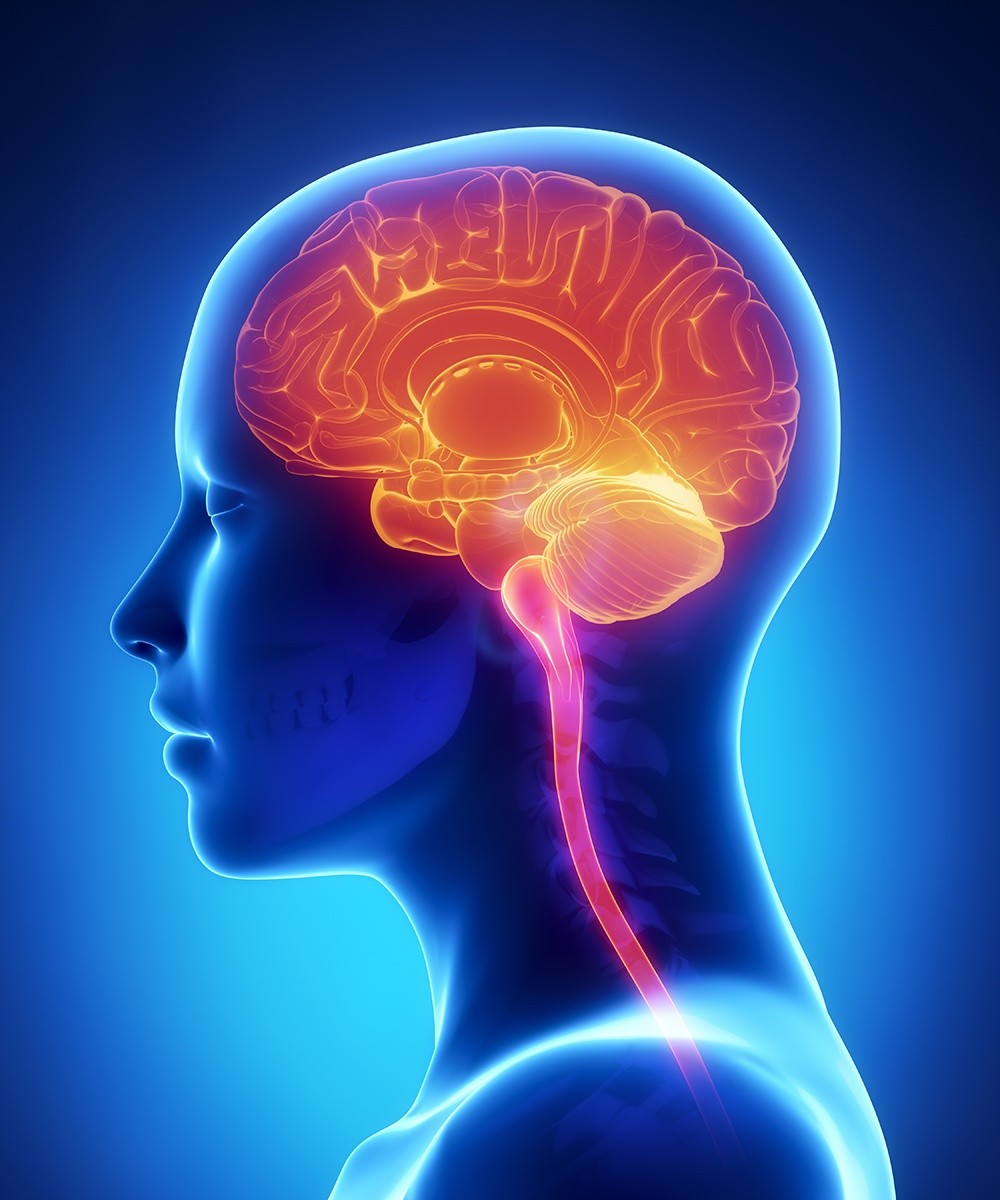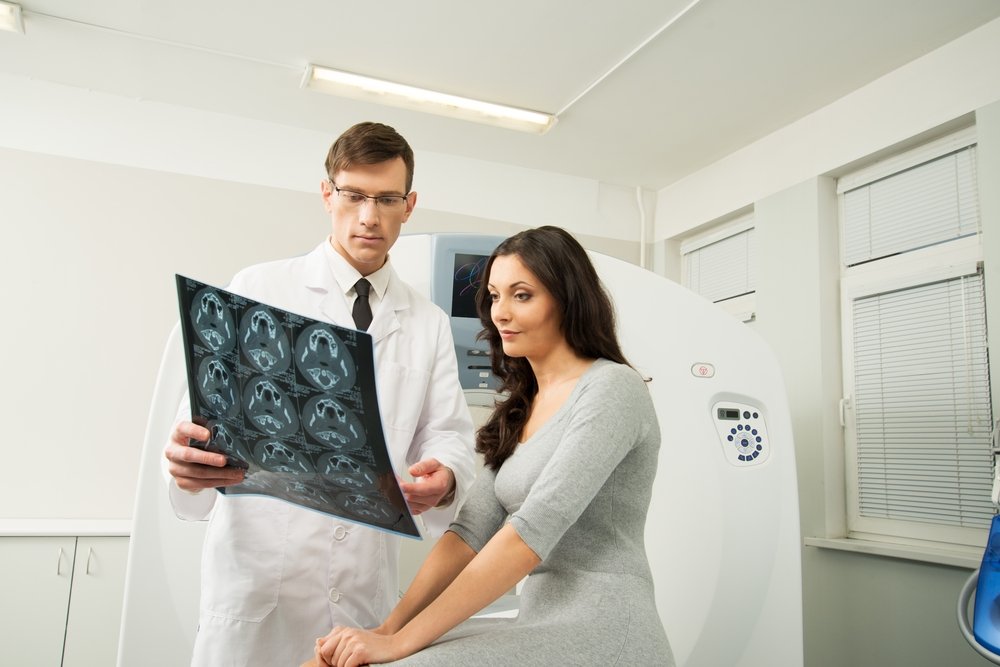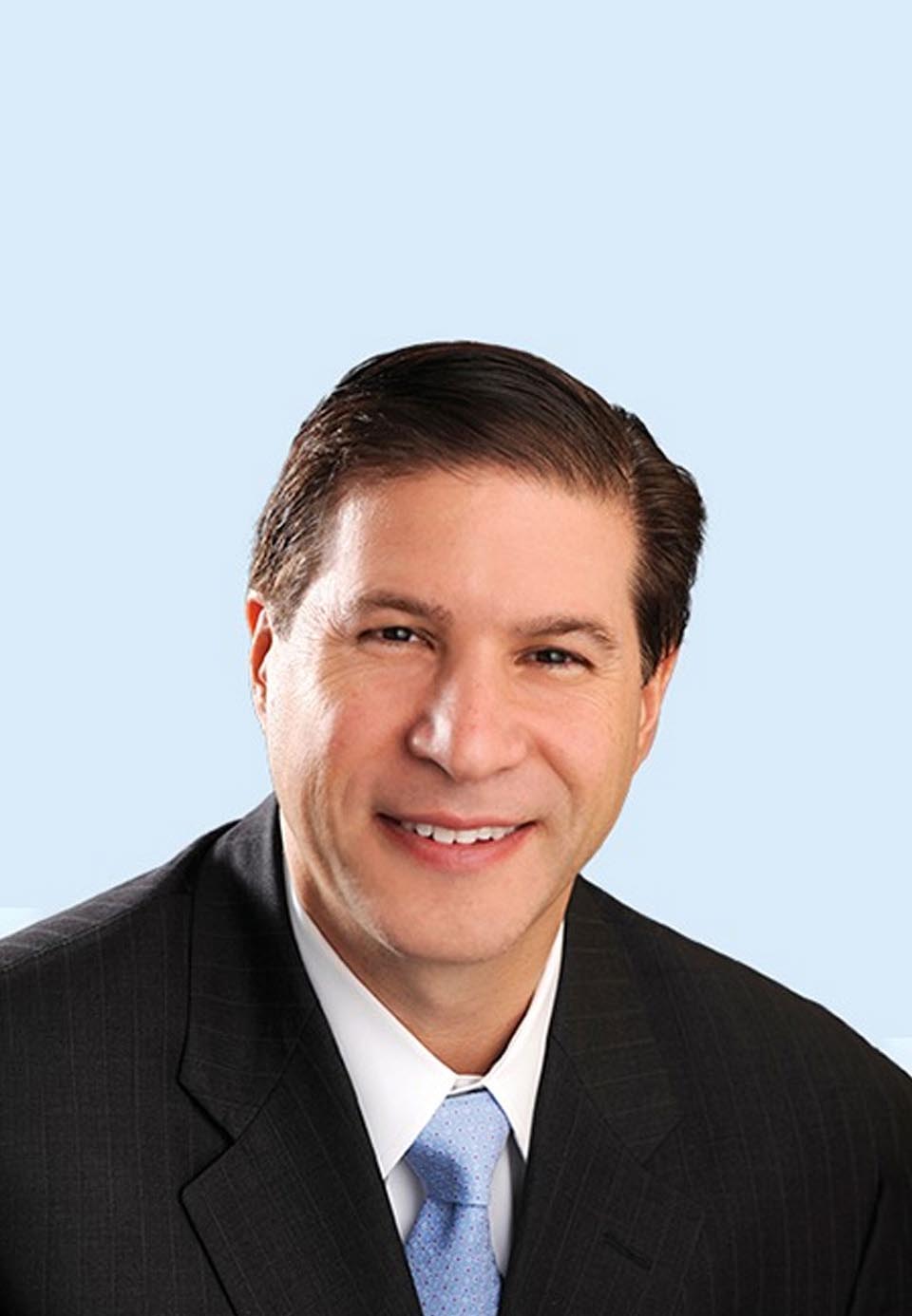- PATIENT FORMS | REQUEST A CONSULTATION | CONTACT US
- 1-844-NSPC-DOC
Glioma

What Is Glioma?
Take ActionTypes of Gliomas
Symptoms of the glioma will depend on which of the glial cell and the corresponding type of tumor. Many brain tumor symptoms include headaches, seizures, nausea or vomiting, lethargy and possibly behavioral changes.
Astrocytoma: Astrocyte cells are part of the underpinnings that regulate neural functioning. Astrocytomas can range from benign, grade 1 tumors to the very aggressively malignant grade 4 or glioblastoma multiforme tumor.
Ependymoma: Ependymal cells coat the center of the spinal cord and the ventricles of the brain. Symptoms correspond to the area of the brain that the tumor is affecting (the fluid-filled ventricles) and may include: larger head size in babies, headache, nausea and vomiting.
Mixed Glioma (also called Oligoastrocytoma): This type of tumor is a combination of oligodendrocyte and astrocyte malignant cells. Symptoms include headache, nausea and vision difficulties. Surgery, usually followed by radiation and sometimes chemotherapy, is recommended. Astrocytes generally grow faster than oligodendrocytes, so that part of the tumor may determine the course of the treatment.
Oligodendroglioma: Oligodendrocytes help form the myelin sheath around nerves in the brain and spinal cord. Generally, oligodendroglioma is a slow-growing tumor.
Optic Glioma: Most often found in children, especially those with neurofibromatosis. Often presents with vision problems due to its location along the optic pathway. If it is very slow-growing, close observation may be enough. Otherwise standard surgery, radiation and chemotherapy are used.
Gliomatosis Cerebri: It is diffuse (scattered) and widespread, symptoms can include headaches, seizures, memory issues and personality changes. Radiation and chemotherapy are the recommended course of action because the tumors are too widespread for surgery.

How Are Gliomas Diagnosed?
Gliomas are most often diagnosed using magnetic resonance imaging (MRI) of the brain. A biopsy can identify the size of the tumor, the grade of the tumor and the type of cells it’s made of.
State-of-the-Art Treatments for Gliomas at NSPC
Depending on the the type of cell forming the tumor, the irregularly shaped cells can be tentacle-like in their growth into healthy tissue, making surgical resection (removal) difficult.
NSPC Brain & Spine Surgery (NSPC) (NSPC) has a seasoned multi-disciplinary team including radiation oncologists, neurosurgeons, neuro-oncologists and anesthesiologists to give you the best brain tumor treatment options. NSPC participates in clinical trials, so you have access to the most up-to-date available treatments and experimental innovations.
Using functional MRI scans, neurosurgeons can identify the association between the tumor and the nearby brain tissue using intraoperative brain mapping, allowing the physician to note the functional areas that the tumor is touching. The computerized images—along with other MRIs and medical scans—assist your neurosurgeon in navigating the brain during surgery.
Surgery followed by radiation and sometimes chemotherapy is the usually recommended course of treatment.
Stereotactic radiosurgery is used to treat gliomas. Pinpointed radiation beams focus on the tumor, often only needing 1 to 5 sessions. The procedure is bloodless, and patients usually go home the same afternoon.
Contact one of our centers on Long Island or in the New York tri-state area to discuss your options. Our specialists at the Brain Tumor Center have the knowledge and experience to help you choose the best treatment plan.

Related NSPC Center
Long Island Brain and Spine Tumor Center
NSPC provides state-of-the-art treatment of benign and malignant brain and spine tumors, using minimally invasive procedures like Gamma Knife®, Novalis TX™, and CyberKnife® rather than major surgery whenever appropriate. Our physicians also perform experienced pediatric neurosurgery — they give personalized, individual attention combined with knowledge and experience to take on the most challenging of cases.
Physicians
Connect With Our 7 Convenient Locations
across Long Island, NY
Our expert physicians, surgeons and doctors are ready to serve you at our 7 convenient locations across Long Island, NY. Connect today to learn how our award winning, world class experts can help.
4250 Hempstead Turnpike Suite 4,
Bethpage, NY 11714
(516) 605-2720
COMMACK
353 Veterans Memorial Hwy,
Commack, NY 11725
(631) 864-3900
One Hollow Lane, Suite 212
Lake Success, NY 11042
(516) 442-2250
MANHATTAN
215 E. 77th Street Ground Floor
New York, NY 10075
(646) 809-4719
PORT JEFFERSON STATION
1500-8A Route 112,
Port Jefferson Station, NY 11776
(631) 828-3001
100 Merrick Road, Suite 128W
Rockville Centre, NY 11570
(516) 255-9031
WEST ISLIP
500 Montauk Hwy
West Islip, NY 11795
(631) 983-8400
World
Class
Expertise
For over 50 years & 350,000 patients NSPC has been a trusted global medical leader.
Contact us today for an appointment or consultation.

